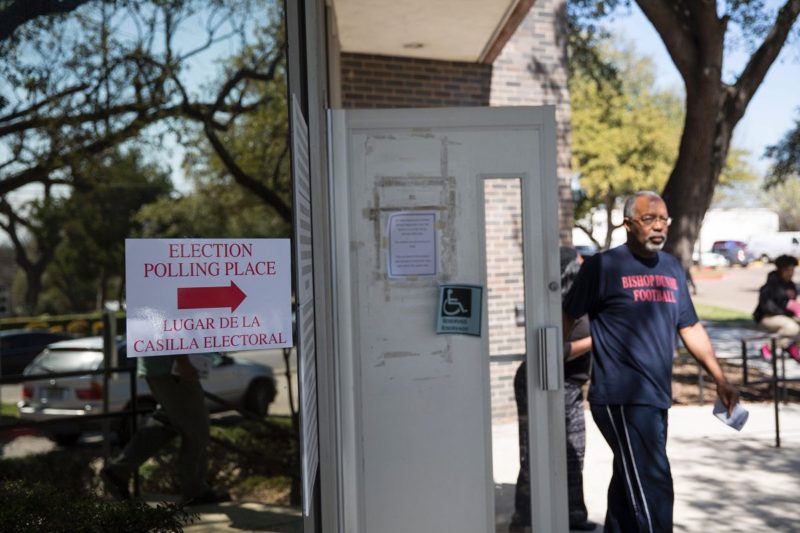Texas GOP’s Voter Suppression Efforts Lose in Court
Voting rights advocates cheered a ruling Wednesday permanently blocking Texas voter ID laws from being enforced.

A federal court on Wednesday blocked as unconstitutional a Texas voter ID law on the grounds that it was passed by the state’s GOP-dominated legislature to discriminate against Black and Latino voters.
The Republican law violates both Section 2 of the Voting Rights Act as well equal protection protections under the U.S. Constitution, according to the court.
Wednesday’s order blocks enforcement of the law in full.
Texas lawmakers in 2011 first passed the state’s voter ID law, considered among the strictest in the nation. That law was blocked as racially discriminatory. Portions of that law were blocked by the Fifth Circuit Court of Appeals in 2016. In response, GOP lawmakers passed another voting restriction bill, SB 5, designed to address what the previous ruling found as unconstitutional by creating an option for voters who say that cannot “reasonably” obtain one of the seven forms out identification outlined in the Texas voter ID bill.
U.S. District Judge Nelva Gonzales Ramos on Wednesday ruled those efforts did not go far enough, permanently blocking both versions of the law.
“[T]he provisions of SB 5 fall far short of mitigating the discriminatory provisions of SB 14, as detailed more fully below,” Gonzaels Ramos wrote in her opinion. “Along with continued provisions that contribute to the discriminatory effects of the photo ID law, SB 5 on its face embodies some of the indicia of discriminatory purpose—particularly with respect to the enhancement of the threat of prosecution for perjury regarding a crime unrelated to the stated purpose of preventing in-person voter impersonation fraud.”
Gonzales Ramos continued: “SB 5 perpetuates the selection of types of ID most likely to be possessed by Anglo voters and, disproportionately, not possessed by Hispanics and African-Americans.”
Voting rights advocates applauded the decision.
“Participating in our democracy should not require a membership card that too few possess,” Janai Nelson, associate director-counsel of the NAACP Legal Defense and Educational Fund (LDF), said in a statement following the ruling. “The federal district court’s decisions rejecting SB 14 and SB 5 reaffirm the core purpose of the hard-fought Voting Rights Act which sought to eliminate racially discriminatory barriers to voting no matter how they are disguised.”
Leah Aden, LDF senior counsel, noted that the decision was an important one in the fight over voting rights. “It should sound an alarm to Texas and other jurisdictions actively working and wasting resources to silence voters of color that LDF and other civil rights organizations will not stand idly by as scheme after scheme are employed to prevent eligible voters from voicing their priorities at the polls.”
Texas Attorney General Ken Paxton (R) said in a statement after the ruling Wednesday that he will appeal, arguing that state lawmakers sufficiently changed the law to remove discriminatory features. Paxton pointed to the Trump administration’s recent reversal of the Obama administration’s Department of Justice argument that the Texas law was unconstitutional and violated the Voting Rights Act.
“The U.S. Department of Justice is satisfied that the amended voter ID law has no discriminatory purpose or effect,” he said in a statement. “Safeguarding the integrity of elections in Texas is essential to preserving our democracy. The 5th Circuit should reverse the entirety of the district court’s ruling.”
According to the NAACP Legal Defense Fund, as of June 2016, Texas had spent at least $3.5 million dollars defending this racially discriminatory law.
